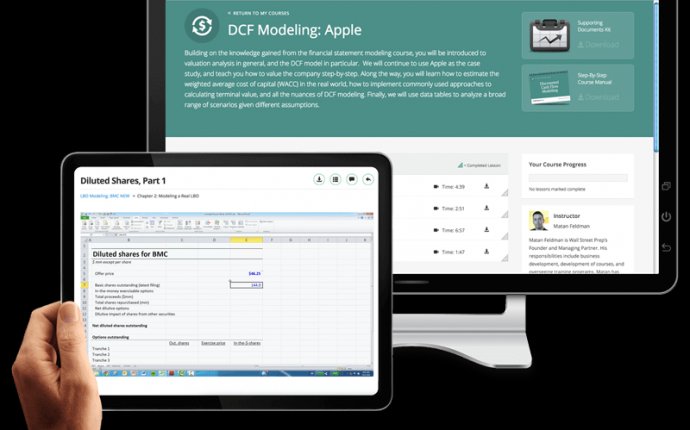
Investment Banking Excel training
Investment banking is focused on evaluating the worth of companies, for the purposes of either capital creation for corporate financing, facilitating mergers and acquisitions (M&A) such as leveraged buyouts (LBOs), corporate restructuring or reorganizations, or investing. For this reason, financial modeling is an important skill for investment banking professionals.
Financial Modeling
The process of conducting financial modeling is aimed at creating a mathematical model that reflects the historical, current or projected value or financial performance of a company, a stock, a project, an investment or any financial asset. Financial models are used to calculate the impact of different variables, such as interest rates or corporate growth rates, on the value of an asset.
A financial model can range from a simple calculation or formula to a complex series of calculations. Virtually any mathematical formula that is used to calculate or estimate a value related to corporate finance can be used as a financial model. Commonly used financial models in the field of investment banking include financial statement modeling, discounted cash flow (DCF) analysis, accretion/dilution modeling for mergers or acquisitions, and various enterprise value calculations and estimations.
Courses in financial modeling are often sought out by those aiming for careers in investment banking, but they can also provide helpful continuing education for people who are already working in the industry. As the field of financial modeling encompasses a vast array of modeling tools and techniques, it potentially offers many years' worth of ongoing training. For example, an investment banking analyst who has been primarily engaged in doing DCF equity valuation analysis for several years may benefit from studying course material that presents methodology for doing accretion/dilution modeling prior to moving into handling M&A.
There are both live instruction courses and online self-study curricula available. Online programs are considerably less expensive and allow students to work their way through the material at their own pace.









